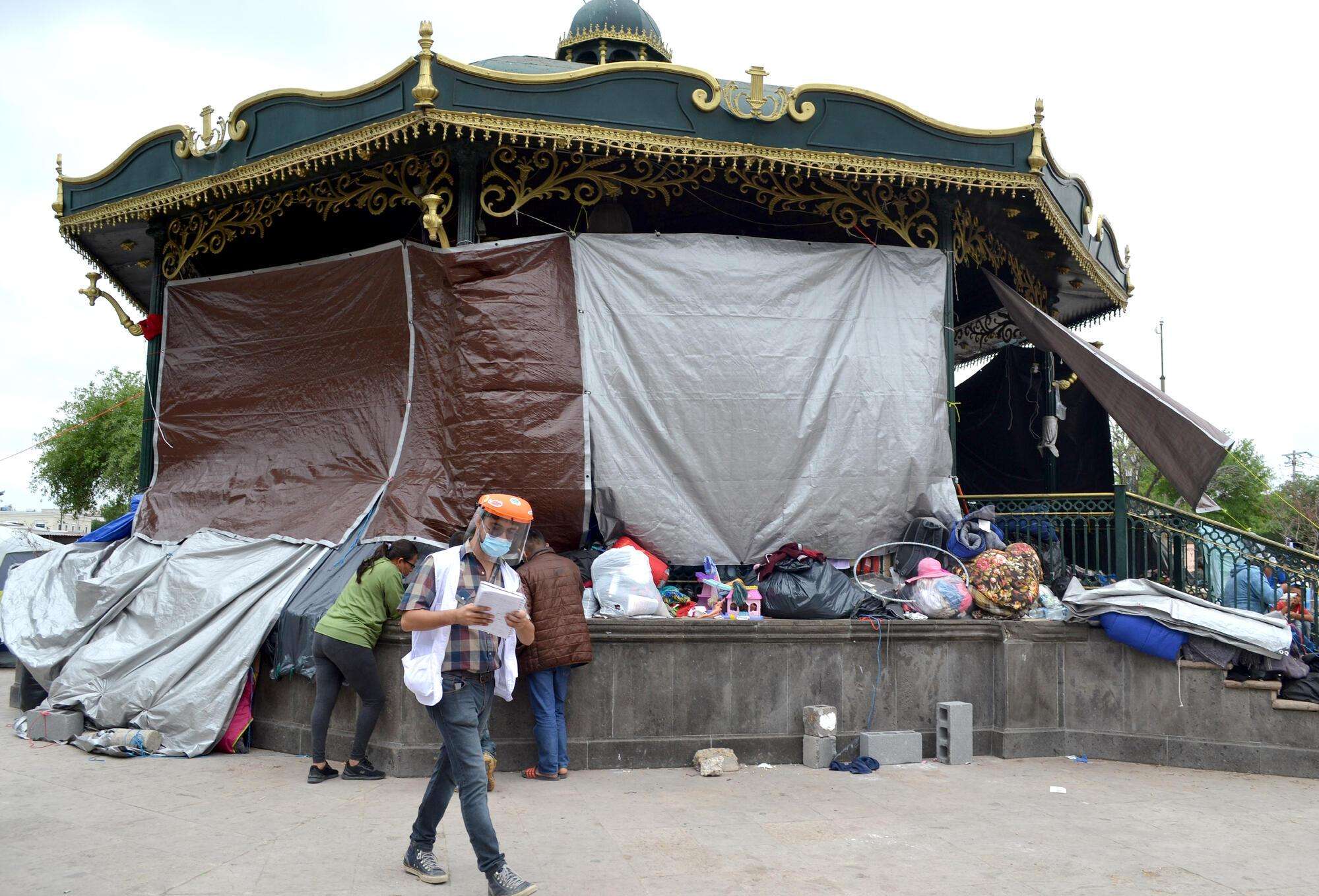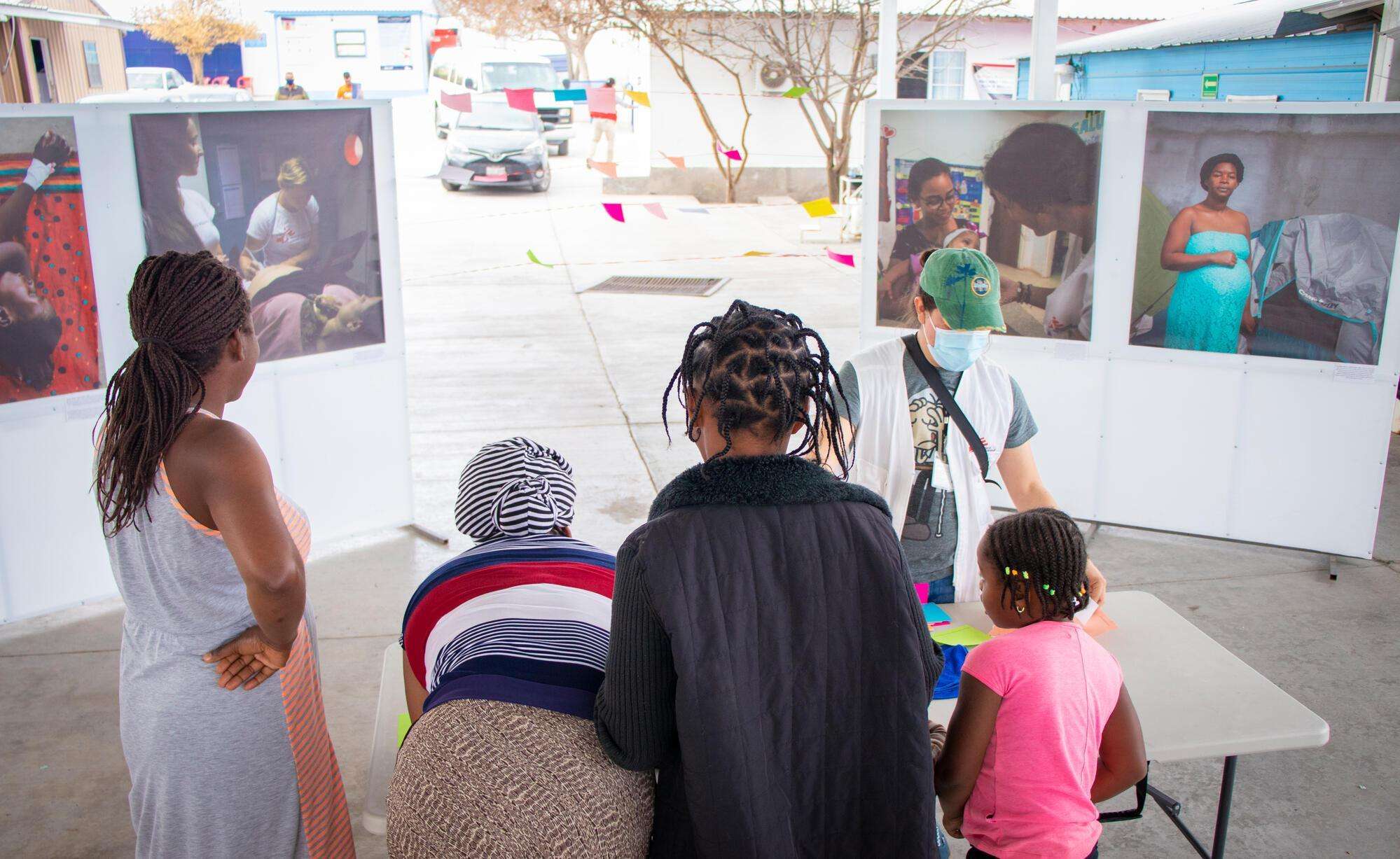Hundreds of people deported by the United States to Mexico under the Title 42 policy—most of them women and children—are stranded in “Plaza de la República,” a public square in Reynosa, Tamaulipas. This region is one of Mexico’s most dangerous and they are vulnerable to kidnapping and violence and going without basic necessities, including drinking water, shelter, and health or social services.
Since February, Doctors Without Borders/Médecins Sans Frontières (MSF) has provided medical and psychosocial care to these migrants, comprising mainly families from Honduras, Guatemala, and El Salvador. Over the past month, the number of people deported to Reynosa continues to increase—with approximately 400 people in the public square reported a few days ago. Here are a few of their stories.
Milton, 34: "There's a lot of discrimination"

I’m from Nicaragua. I left my country because of armed conflict. Political parties were fighting and killing each other. I found myself in some very difficult and dangerous situations that forced me to leave. I lived in the United States for some time, but I was deported back to Nicaragua in 2018. I've been in Mexico for two years and in Reynosa for three months. I’ve spent all my time here, in Plaza La Republica, because I could only stay for a few days at the Casa Migrante Guadalupe. I got a job in construction and I would like to rent a room with the money I earn, but there's a lot of discrimination. It is hard to be accepted if you don't have an ID. I have applied for asylum in Mexico at the Mexican Commission for Refugee Aid (COMAR) in Tabasco, but I had to leave, so I don't know if I can continue my asylum process from here. I'd like to stay in Reynosa—although the city is dangerous. I've suffered violence. I’ve received care from an MSF doctor at Casa Migrante Guadalupe—she helped me.
Gloria, 57: "I feel like I'm in a nightmare"

I'm originally from Guatemala. I left February 27, 2021 with my grandson, Frankli. He's not really my grandson, but to me, it's as if he were because I have looked after him since he was born 13 years ago. He’s an incredibly special boy. He has autism and has several health problems with his heart and ears. It is said that autistic people live in a bubble, enclosed in their world, with little contact with others—but Frankli is quite the opposite. He may have difficulty talking and walking, but he is a lively child who loves to be with others. Frankli always greeted everyone in the street. He had a good life. I did everything I could to make him feel good, and I think I managed to do it so far. His mother worked a lot and that's why I took care of him.
Nine years ago, Frankli's mother moved to the United States to make more money to support her son, as he always needed a lot of medicine and therapy. We started the journey because his mother wanted us to be able to come to the United States to have Frankli's ears surgically reconstructed. Before leaving, we went to see a lawyer [to] prepare a power of attorney to prove that I was the person who took care of Frankli in his mother's absence. We took the bus—just the two of us—and arrived here after 22 days of traveling. We got to Reynosa by accident, following the directions that people gave us on the way. We crossed the Rio Grande and when we arrived on the other side, they took Frankli and deported me. I was told that I couldn't stay with him because I wasn't his mother and that the letter wasn't enough to prove our family relationship. I know that when they took him to a group home on the other side, he was extremely nervous and aggressive because he was so afraid of being separated from me.
He has been with his mom in New York for eight days now, but he still doesn't feel very well. We spent the last nine years together and he's not used to being with other people, even if it's his mom. She told me that she was glad to be with him again, but she could not be completely happy because I was not there. It's been three weeks since I was deported, and I’m in this plaza. I don't know what to do. I just want to be with my family, which now is Frankli and his mother. I have nobody else, and I have nothing left in Guatemala. I never thought I would find myself living in a situation like this in my life, sleeping in the street. I feel like I'm in a nightmare. I lost one child before and I have the feeling that I have lost another one today. It is very difficult, and I’m running out of strength.
Jennifer*: “I was afraid that my husband would kill me”

I’m with my son Miguel*, who is three years old. We're from Honduras and we've been in the square for eight days. I left Honduras because my husband abused me—I was afraid he would kill me. Besides, I’m poor, and I had no way to support my family. I have two other children I left with my mother, one is only months old.
I want to cross to the United States to find a job opportunity and support my family. It took us a month to travel from Honduras. We traveled by train, by bus, and we walked a lot.
It was extremely difficult, especially for Miguel—I had to carry him on my shoulders most of the way. As my youngest child is very young, I had maternal health problems on the way and was treated by MSF in the south of the country in Villahermosa and Coatzacoalcos. I'm very thankful for the support I received.
*Name changed to protect anonymity.






